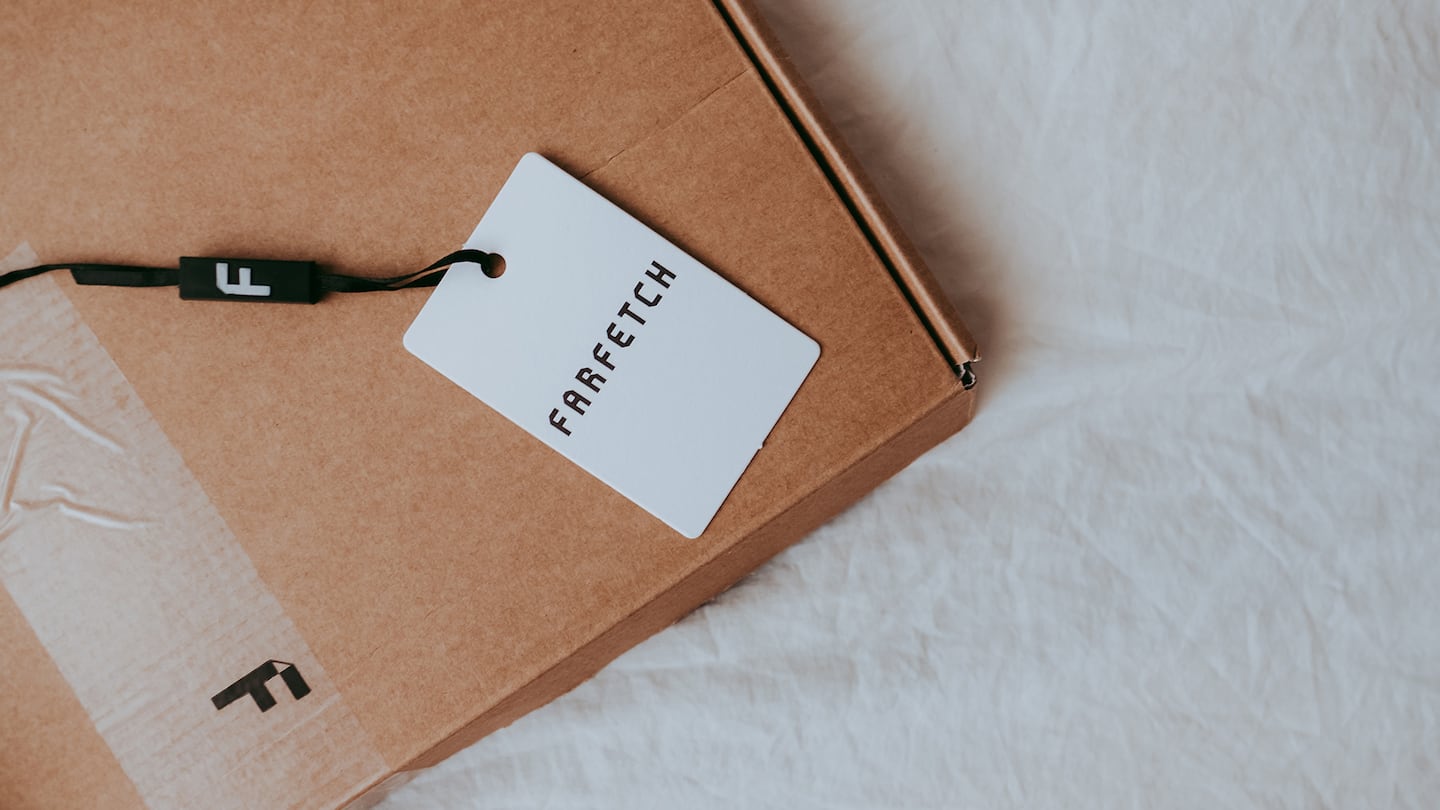
Agenda-setting intelligence, analysis and advice for the global fashion community.

Agenda-setting intelligence, analysis and advice for the global fashion community.

Insolvency is not out of the question for Farfetch as the company explores a range of options to keep its business afloat amid a weakened cash position, The Business of Fashion has learned.
The luxury e-tailer had more than $400 million in cash on its balance sheet at the end of June. But its financial obligations have mounted. Farfetch has around $2.8 billion in financial obligations that include convertible notes, according to estimates from Bernstein. That includes over $1 billion in term loans, including a $200 million credit facility it took out in September.
In an October report, Bernstein analyst Luca Solca spelled out the urgency of Farfetch’s short-term financial situation. “It is debatable — from our analysis — that Farfetch has enough liquidity to get to the year end as a going concern,” Solca said in the report.
Since then, Farfetch’s position has only worsened, three people familiar with the company’s finances and operations said. On Nov. 29, Farfetch cancelled its quarterly earnings release, where it would have been required to update the market on its sales, profits and cash position. The decision followed a report in The Telegraph on Tuesday that chief executive José Neves, who founded Farfetch in 2007, was in discussion with top shareholders and JP Morgan to delist the company.
ADVERTISEMENT
Going private, preferably with a deep-pocketed investor, isn’t the only option Farfetch is exploring to raise cash, BoF has learned. The company has shopped around business units like Off-White operator New Guards Group and luxury beauty retailer Violet Grey.
Farfetch is also attempting to tap existing partners for an investment to keep it afloat, though it has yet to secure a bailout, according to people familiar with the situation. A potentially lucrative deal with Richemont, in which Farfetch would buy a stake in its biggest rival Yoox-Net-a-Porter, also appears to have stalled. The Swiss luxury giant stated last week it had no plans to invest further in Farfetch.
Farfetch declined to comment.
Insiders and analysts say Farfetch’s current cash troubles reflect bad decisions and flaws in the underlying business model, some of which date back to before the company’s 2018 initial public offering.
However, it appears to have been this year’s broader luxury slowdown — as aspirational shoppers in key markets like the US and China are spending less on nonessential goods — that tilted long-simmering challenges into a full-blown crisis and made arranging a rescue more difficult.
For example, according to two people familiar with the matter, Farfetch is considering the sale of New Guards Group (NGG), the operator of Off-White and Palm Angels which it acquired for $675 million in 2019.
But NGG, once Farfetch’s only profitable unit, has heavy exposure to aspirational shoppers in the US, who have been among the hardest hit by inflation and economic uncertainty. Under-investment in marketing at Off-White, including a cancelled fashion show earlier this year, haven’t helped. Sales plunged by more than 40 percent from a year earlier in the second quarter, its most recent report before last week’s cancelled earnings release. All this has made NGG a less attractive asset and contributed to Farfetch’s cash crunch.
Farfetch is similarly unlikely to recoup its investment in beauty, which included a $50 million acquisition of cult Los Angeles-based beauty retailer Violet Grey in January 2022. Farfetch insiders also added that integrating multiple acquisitions has been a distraction, requiring valuable management time that was not directed at the core business.
ADVERTISEMENT
Farfetch has longtime partnerships with some of the world’s biggest retailers, which could theoretically inject more cash to prop up the business. In addition to Richemont, there’s Alibaba, which has a joint venture with Farfetch in China; and LVMH, which owns the Off-White brand, the biggest by far in New Guards Group’s portfolio.
Of the three, Richemont was widely seen as the closest Farfetch had to a white knight. But the company stated on Nov. 29 it “does not envisage lending or investing into Farfetch.” That was interpreted by the market as Richemont all but pulling the plug on the YNAP deal; Farfetch’s stock plunged by more than 50 percent, briefly trading below $1 a share (at its peak in early 2021, shares traded above $70).
The reaction from Wall Street reflects how much of Farfetch’s future was tied to the YNAP joint venture. For over a year, Farfetch had been working on a complex deal with Richemont to acquire a 47.5 percent stake in YNAP, mostly for shares, with the intention it would buy the rest in a few years once YNAP becomes profitable.
European Union regulators approved the deal in October, theoretically clearing the way for all parties to proceed. In addition to adding billions of dollars in gross merchandise volume — a measure of sales on its marketplace — Richemont would also re-platform its brands using Farfetch’s technology, giving a boost to the latter’s white label software service.
Richemont said Sunday it had no further comment beyond its Nov. 29 statement.
A potential Farfetch insolvency, if it were to happen in a worst-case scenario, would have far-reaching ramifications for the fashion industry. Some observers have likened it to fashion’s “Lehman Brothers’ moment,” referring to the Wall Street bankruptcy that sent shockwaves through the global financial system in 2008.
Farfetch is one of the largest distributors of luxury goods online, selling more than $3 billion worth of high-end wares on its marketplace last year. The company, which employs more than 6,000 people in 21 countries, works with more than 1,400 brands and boutiques in 50 countries, and serves as the white label e-commerce platform for major retailers like Harrods and Neiman Marcus.
But industry observers are not counting out Neves’ ability to find options to save the business before it leads to insolvency.
And not everyone has given up on Farfetch. Point72, the asset management firm owned by billionaire investor Steve Cohen, on Friday disclosed a 5.1 percent stake in Farfetch in a regulatory filing. Farfetch’s shares were up 9 percent at market close that day.
The luxury e-tailer could be the latest e-commerce firm to go private amid its worst year as a public company. But Farfetch’s much scrutinised lack of focus could persist outside the public market.
Farfetch’s chief executive José Neves is reportedly conferring with top shareholders, including Richemont and Alibaba, and JP Morgan about delisting the company, The Telegraph reported on Tuesday. A take-private deal could happen imminently as Farfetch’s stock remains under pressure, according to the report. The e-tailer’s share price has plummeted more than 80 percent since its 2018 IPO.
The London-based luxury e-commerce giant, which has lost 97 percent of its market value in the last two years, has suffered from lack of focus, writes Imran Amed.
EU regulators are expected to give the go-ahead for Richemont to spin-off Yoox Net-a-Porter in a joint venture with rival Farfetch. But in the 14 months since the deal was announced, Farfetch has lost 90 percent of its market value with significant implications for the transaction and the wider fashion ecosystem.

Malique Morris is Direct-to-Consumer Correspondent at The Business of Fashion. He is based in New York and covers digital-native brands and shifts in the online shopping industry.

Imran Amed is the Founder, CEO and Editor-in-Chief of The Business of Fashion. Based in London, he shapes BoF’s overall editorial strategy and is the host of The BoF Podcast.
The FTC argued at an eight-day trial in New York that the merger would eliminate fierce head-to-head competition between the top two US handbag makers.
The Birkin bag maker reported a hefty rise in third-quarter sales on Thursday, continuing to outperform rivals hit hard by a sharp slowdown in luxury demand.
Sales at the French group fell 16 percent in the third quarter as a market-wide downturn hit hard. At flagship brand Gucci, where revenue fell 25 percent, management is exploring store closures while betting on a revamped handbag programme to jump start demand.
The tie-up between the French couture giant and the Hindi film star comes as luxury executives eye India’s high growth potential.